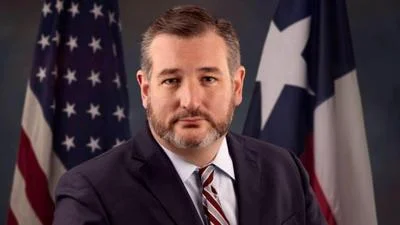Us Senator Ted Cruz (TX) | Facebook Website
Us Senator Ted Cruz (TX) | Facebook Website
U.S. Senator Ted Cruz of Texas continues to lead efforts in the cryptocurrency sector by successfully advancing legislation that impacts the U.S. approach to digital currencies and energy use in Bitcoin mining. Recently, President Donald Trump signed a resolution introduced by Cruz that overturns a regulation from the previous administration, marking the first cryptocurrency legislation signed into law. This move is seen as a reinforcement of American leadership in cryptocurrency.
"The resolution is a victory for innovation, privacy, and economic freedom," stated Cruz in an interview with Crypto In America. The senator highlighted collaboration with the administration, saying, "I am grateful to President Trump for signing my resolution into law."
The bill, passed with significant bipartisan support, repeals the IRS's "DeFi broker rule," a regulation believed by critics to stifle the development of decentralized finance technologies. Cruz's leadership on this matter affirms his stance against federal overreach in digital financial systems.
Cruz is also focusing on the environmental implications of cryptocurrency activities. He introduced the Facilitate Lower Atmospheric Released Emissions (FLARE) Act, which proposes using surplus natural gas to power Bitcoin mining, a subject of debate due to its environmental footprint. "It takes advantage of Texas’s vast energy potential," Cruz stated, linking the initiative to both environmental benefits and economic opportunities in the crypto sector.
Additionally, the senator has been active on other legislative fronts concerning digital currencies. He introduced the Anti-CBDC Surveillance State Act to prevent the Federal Reserve from issuing a central bank digital currency, a move supported across party lines. Moreover, Cruz has advocated for overturning specific infrastructure package provisions that impose new reporting requirements on cryptocurrency firms.
His efforts suggest a broader strategic goal of ensuring that the United States remains a leader in cryptocurrency development and trade, positioning the nation to compete internationally. The initiatives he supports aim not only at regulatory reform but also at promoting technological innovation and energy-efficient practices within the industry.






 Alerts Sign-up
Alerts Sign-up